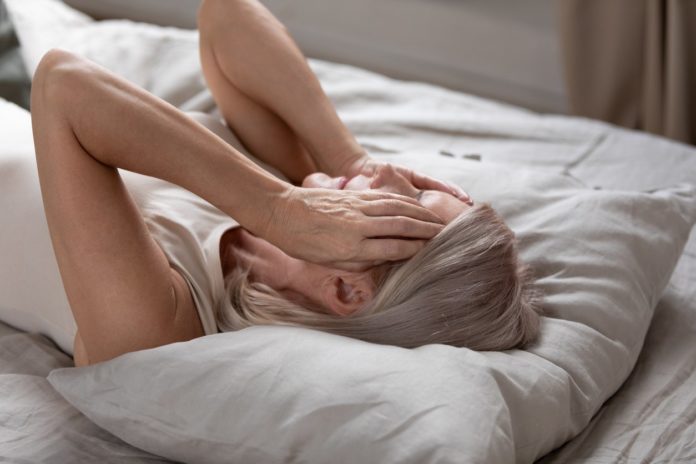Hot flashes, sometimes known as a hot flush is a sudden sensation of warmth, and usually an outbreak of sweating on the upper portion of one’s body. The night sweat can be described as the most common “hot flash” that can occur at night, usually when one is asleep. These flashes are reported by more than 80% of women at the time of menopausal changes, and men are also susceptible to the diminution of testosterone at middle age.
When sleeping, a woman’s body temperature increases dramatically before a flash. This can trigger her to awake. According to the National Sleep Foundation writes that up to 61% of women postmenopausal suffer from insomnia and less restful sleep due to hot flashes that interrupt their sleep and cause frequent wake-ups.
What Your Doctor Might Not Be able to Tell You About Menopause”. There’s a part of the brain that regulates the levels of progesterone and estrogen made by the Ovaries. If these two hormones become depleted in menopausal women. The brain sends signals to the ovaries to make more hormones however, they cease to respond to these signals.
What are the Common Causes of Night Sweats and Hot Flashes?
The signaling system could be faulty when the brain is sending out increasing amounts of signals, and then starts to “shout”. This excessive activity begins to affect the adjacent regions of the brain, including the brain area that controls the body’s temperature and sweating mechanism and the development in causes of hot flashes.
Some foods that are spicy or hot drinks such as alcohol, caffeine or cigarettes can trigger an instant. To ease the sweaty nights in the bed, keep your room cool and put an unwashed washcloth in a bowl filled with frozen ice close to the bed for applying to the chest or forehead as necessary. To prevent hot flashes in the summer months, keep cool by using fans and drinking cool drinks. Make sure that the air conditioner is on and ensure that there is air circulation is present throughout the space. Wear layers of clothing so that you can remove them when you need to.
Vitamin C and Vitamin E have been found in studies to reduce hot flashes. One study that backed Vitamin E is reported in “Gynecologic and Obstetrical Research” concluding it was found that vitamin E is an efficient and appropriate treatment. Numerous studies have shown that vitamin C can strengthen blood vessels, and can act as an effective health improvement. In a research study that combines vitamin C and bioflavonoids (the white matter that is found on the inside of the orange peels) 67% of participants experienced complete relief.
Calcium and magnesium are both able to help you get better sleep and a more restful night specifically because testosterone in women and estrogen in men aid in keeping these minerals flowing throughout the body. If these hormones are depleted, frequent supplementation with minerals is required.

